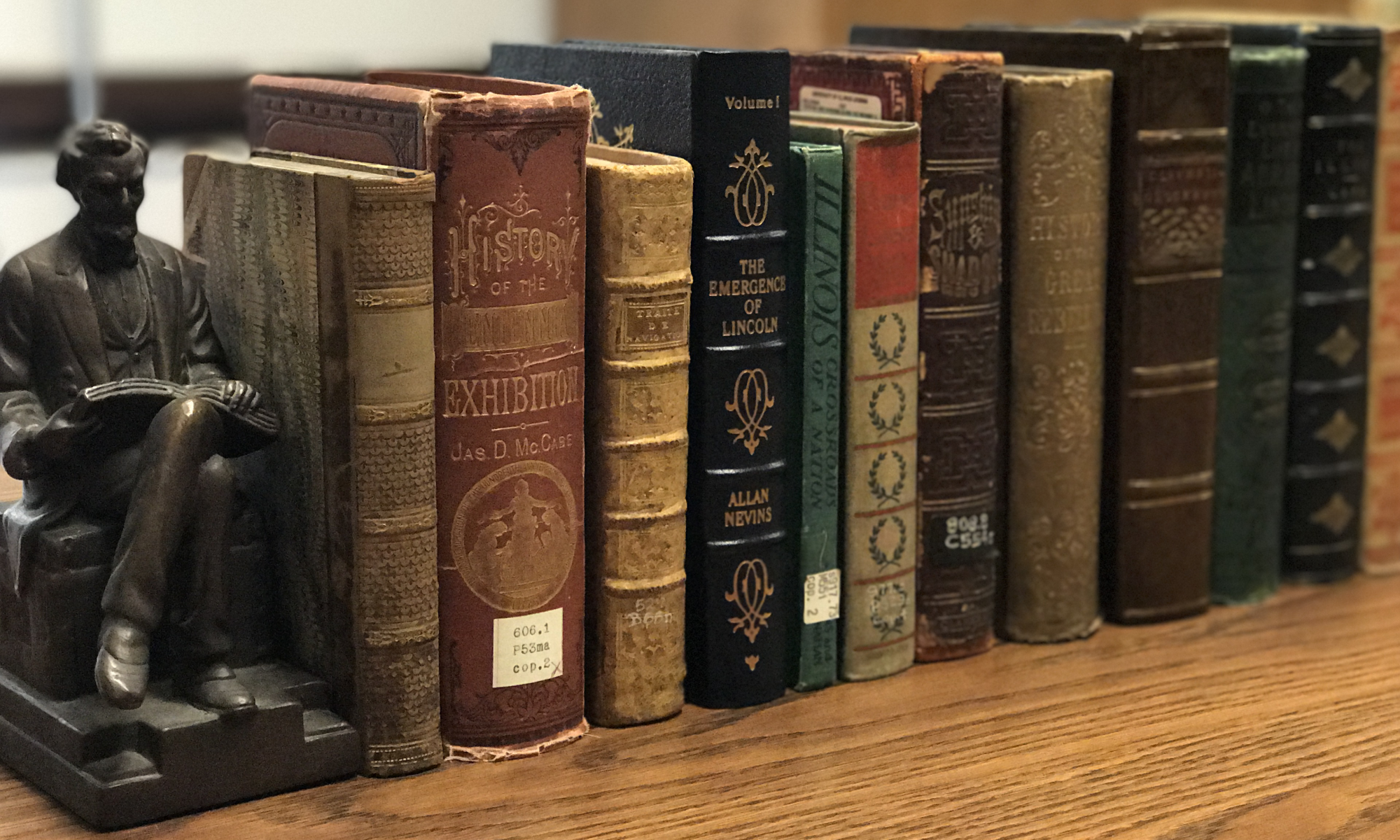In the initial decades after its founding in 1909, the Illinois Historical Survey (now part of the Illinois History and Lincoln Collections) focused on research and collecting documents to support the publication of a multi-volume state history as well as an edited series of documents. The Survey obtained copies of archival materials from both North America and Europe. The IHLC currently holds dozens of boxes and reels of microfilm of documents from these early collecting initiatives, including 16 cubic feet and 25 reels of microfilm from French Archives and Depositories (MS 023). The project to collect copies of documents from French archives and depositories involved significant effort and repeated readjustments, as it spanned two continents and the outbreak of two world wars.
It was at a 1907 meeting of the Conference of State Historical Societies that the idea for the French Archives and Depositories was first proposed. Representatives from multiple states along the Mississippi Basin, all of whom had an interest in securing documents relating to European settlements in the region attended the conference, held that year in Madison, Wisconsin. The collection of documents from European archives thus became a multi-state effort centered in state historical institutions. Early in the process, the group of states working toward securing documents from European archives partnered with the Carnegie Institution and the Library of Congress, two organizations that had already begun the process of researching in foreign archives.
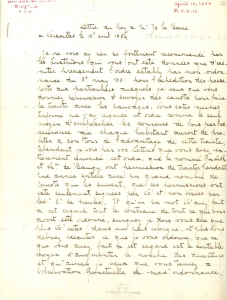
Waldo G. Leland, the Carnegie Institution’s principal representative in France, was instrumental in collecting copies of documents held within the French National Archives for both the Illinois Historical Survey and the Carnegie Institution. (Leland would later dedicate himself to the campaign to establish the National Archives for the United States, implementing archival practices that he learned from working in European archives.) In his time as part of a committee working to obtain copies of documents held in European archives relating to early settlements in the United States, Leland proposed that in addition to copying the relevant documents for individual states, there ought to be the “publication of a comprehensive calendar of the archives in Paris which relate to the Mississippi Valley.” This task was designated to Professor Clarence Walworth (C.W.) Alvord, Director of the Illinois Historical Survey at the University of Illinois Urbana-Champaign.
To aid in this process, Leland began compiling lists of documents found in the French Archives that could be relevant to states in the Mississippi Basin. These lists would be sent back to the United States, and directors of the state historical institutions involved in the collection effort could request copies of specific series or documents. Leland’s calendaring efforts in the French National Archives were interrupted due to the outbreak of the First World War, when France was invaded by German and Austrian forces. In a 1914 report to the committee, Leland wrote that Paris was in danger of being besieged and occupied, and as a result, the French government was removed to Bologne, an administrative commune in Northeastern France, for a time.
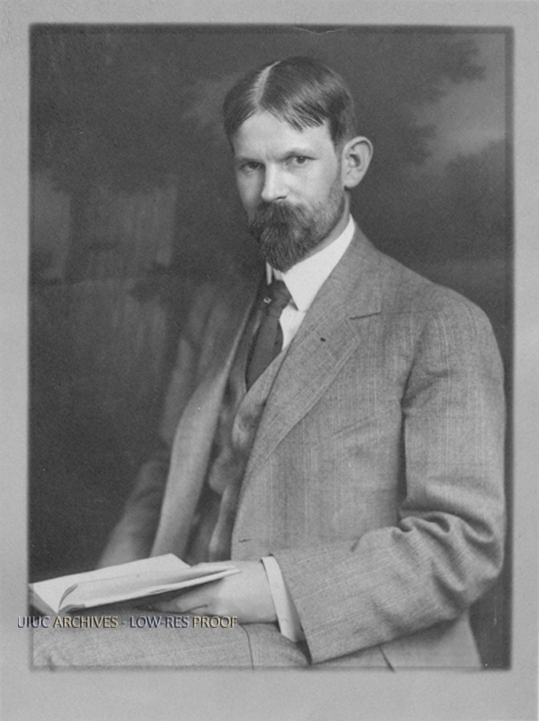
Work in the French National Archives was nearly impossible during the government’s removal. Upon the outbreak of World War One, Abel Doysié — a French contributor to the Survey’s collection process who oversaw copying efforts in the French National Archives — received a summons for military service. In Doysié’s absence, an assistant, Madame Villa, managed to slowly resume work within the National Archives. A May 21, 1915, letter from Leland to Alvord indicates that the French National Archives was open and copying efforts were able to resume in full force.
After hearing the news of the return to work in the French National Archives, Alvord reached out to Leland with a list of copy requests from the Illinois Centennial Commission as well as a request for a copyist recommendation. Leland returned Alvord’s letter with a recommendation for a Miss Sybil Norman, who became the primary copyist employed by Alvord for the Illinois Historical Survey’s document collection effort. Originally from Scotland, Miss Norman had been working in the French National Archives transcribing documents for the Canadian Archives. Leland felt sure that she would be a good fit, though he noted that her “handwriting is perfectly legible, but not that of a professional copyist.” Miss Norman would be involved in copying efforts for the Illinois Historical Survey for several years.
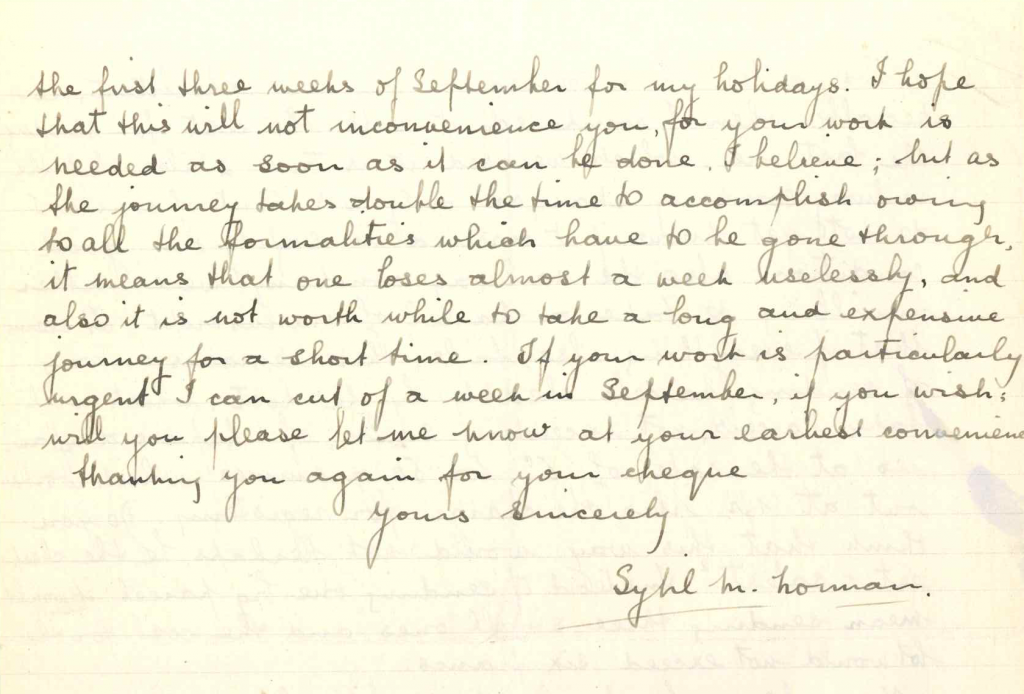
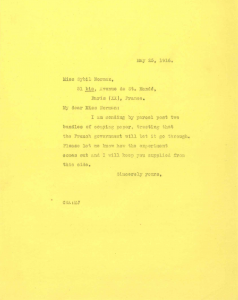
In September 1916, Miss Norman requested time off to visit her family in Scotland. Alvord granted this request, but as the National Archives had already been closed for the second half of August that year, he asked that she find a temporary replacement to continue the necessary work. Miss Norman’s work for the Illinois Historical Survey became more complicated with the backdrop of war. Several letters between Miss Norman and Alvord reference the First World War and the resulting increased cost of paper. As paper was necessary for her copying efforts, Miss Norman asked Alvord how he would prefer she handle the matter of securing inventory. Despite the existing French embargo on the importation of paper, Alvord responded by sending Miss Norman two bundles of paper for her copying efforts. Though it took several months, the paper eventually did reach Miss Norman.
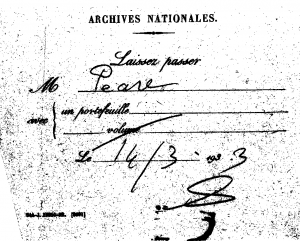
After Alvord’s time as Director of the Illinois Historical Survey (1911-1920), the copying efforts in the French National Archives became less of a priority – this would not change until the project was revitalized by Professor Theodore Calvin (T.C.) Pease, who served as Director of the Illinois Historical Survey from 1938-1948. Under Pease’s direction, the bulk of the IHLC’s French Archives and Depositories collection (MS 023) was copied, primarily as photostats and transcriptions. For his copying efforts, Pease relied on Abel Doysié, a French researcher who had been involved in the collection process since its beginning, though in 1933 Pease visited the French National Archives himself to conduct his own research. Pease’s National Archives visitor pass can be found with his papers on the French National Archives in the Illinois Historical Survey Library Archives collection. Despite the best efforts of Pease and Doysié, the collection efforts in the French National Archives were not fully completed before the outbreak of the Second World War, though virtually all outstanding orders had been filled by the time the war cut off communications between the Survey and Doysié from 1940 to 1945.
Calendar notes (chronological lists of documents in a collection that provide important information about the original documents and their origins) on collected French documents were compiled by professors C.W. Alvord and T.C. Pease — these notes can be found in the Illinois Historical Survey Library Archives collection. These calendar notes are intended to aid researchers in finding documents within the extensive French Archives and Depositories collection. The information within these notes has been copied onto a set of cards that are arranged chronologically and include the date, format (photostat, transcription, and/or microfilm), series information, and a brief content description. The calendar cards for the French Archives and Depositories collection have recently been digitized and are available for viewing online. The scope of the Illinois Historical Survey’s French Archives and Depositories collection is also discussed in two works by Henry Beers, author of The French in North America: A bibliographical guide to French archives, reproductions, and research missions (1957) and The French and the British in the Old Northwest: A Bibliographical Guide to Archive and Manuscript Sources (1964).
Image Sources:
Letter from Sybil Norman to C.W. Alvord, May 22, 1916. From MS 736: Illinois Historical Survey Archives. Papers, 1903-1972. Part III: Box 1, Folder: Alvord Administration. French Archives: Alvord Correspondence, 1906-1909.
Portrait image of Clarence W. Alvord, Professor of History, undated. From University of Illinois Archives, University Press 1966.
Letter from C.W. Alvord to Sybil Norman, May 25, 1916. From MS 736: Illinois Historical Survey Archives. Papers, 1903-1972. Part III: Box 1, Folder: Alvord Administration. French Archives: Alvord Correspondence, 1906-1909.
Letter from Sybil Norman to C.W. Alvord, July 1, 2916. From MS 736: Illinois Historical Survey Archives. Papers, 1903-1972. Part III: Box 1, Folder: Alvord Administration. French Archives: Alvord Correspondence, 1906-1909.
Letter from C.W. Alvord to Sybil Norman, July 13, 1916. From MS 736: Illinois Historical Survey Archives. Papers, 1903-1972. Part III: Box 1, Folder: Alvord Administration. French Archives: Alvord Correspondence, 1906-1909.
Sample transcription, King’s Letters and instructions to LaBarre and Denonville, 1684-1685. From MS 023: French Archives and Depositories. Papers, 1644-1808. Box 1, Folder: Series B: Lettres Envoyees.
Select IHLC Resources:
MS 023: French Archives and Depositories. Papers, 1644-1808.
MS 736: Illinois Historical Survey Archives. Papers, 1903-1972.
MS 421: Alvord, Clarence W. Papers, 1906-1920.
MS 181: Pease, Theodore Calvin. Papers, 1903-1948.
